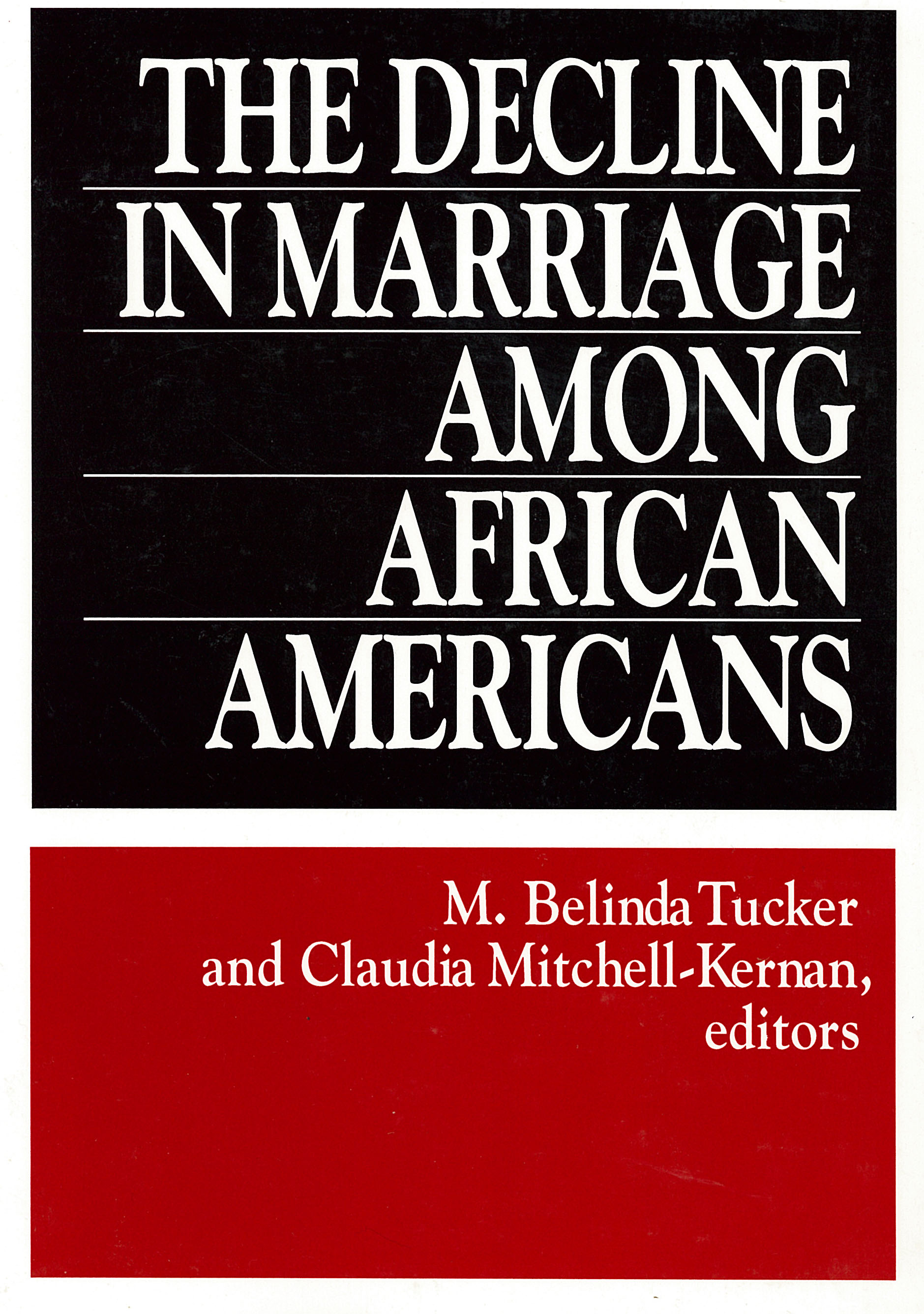
- Downloads
- Download Full Text
The Decline in Marriage Among African Americans
RSF books are also available from:
In a time when the American family has undergone dramatic evolution, change among African Americans has been particularly rapid and acute. African Americans now marry later than any other major ethnic group, and while in earlier decades nearly 95 percent of black women eventually married, today 30 percent are expected to remain single. The black divorcee rate has increased nearly five-fold over the last thirty years, and is double the rate of the general population. The result, according to The Decline in Marriage Among African Americans, is a greater share of family responsibilities being borne by women, an increased vulnerability to poverty and violence, and an erosion of community ties.
The original, often controversial, research presented in this book links marital decline to a pivotal drop in the pool of marriageable black males. Increased joblessness has robbed many black men of their economic viability, rendering them not only less desirable as mates, but also less inclined to take on the responsibility of marriage. Higher death rates resulting from disease, poor health care, and violent crime, as well as evergrowing incarceration rates, have further depleted the male population. Editors M. Belinda Tucker and Claudia Mitchell-Kernan and the contributors take a hard look at the effects of chronic economic instability and cultural attitudes toward the male role as family provider. Their cogent historical analyses suggest that the influence of external circumstances over marriage preferences stems in large part from the profoundly damaging experience of slavery.
This book firmly positions declining marriage within an ominous cycle of economic and social erosion. The authors propose policies for relieving the problems associated the changing marital behavior, focusing on support for single parent families, public education, and increased employment for African American men.
M. BELINDA TUCKER is associate professor of psychiatry and biobehavioral sciences at the University of California, Los Angeles and faculty associate of the Center for Afro-American Studies.
CLAUDIA MITCHELL-KERNAN is vice chancellor for academic affairs, dean of the graduate division, and professor of anthropology and of psychiatry and biobehavioral sciences at the University of California, Los Angeles.
CONTRIBUTORS: Phillip J. Bowman, Lynn C. Burbridge, Sheldon Danziger, William A. Darity Jr., Elizabeth Douvan, Mark A. Fossett, Shirley J. Hatchett, David M. Heer, James S. Jackson, K. Jill Kiecolt, Marilyn Krogh, Claudia Mitchell-Kernan, Hector F. Myers, Samuel L. Myers Jr., Melvin L. Oliver, Robert J. Sampson, Robert Schoen, A. Wade Smith, Brenda Stevenson, Mark Testa, M. Belinda Tucker, and Joseph Veroff


